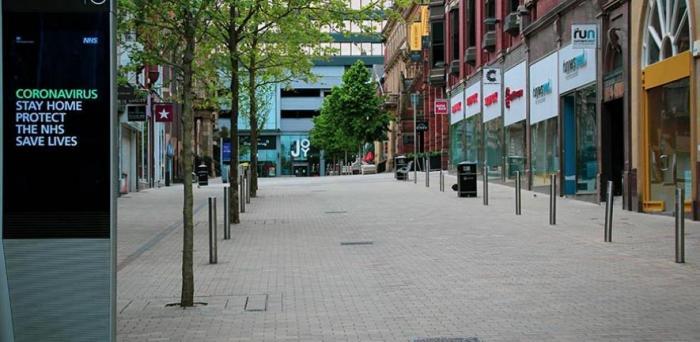The UK’s first national lockdown from March 2020 and its immediate aftermath saw a massive shift in consumer habits that was initially mandated but then lingered as shops and restaurants opened but risks from the virus remained.
A new study from the universities of Cambridge and Newcastle used data from the ONS to compare retail, hospitality and online sales in the UK between March and August 2020 with average figures for the same months for the years 2010-2019.
Researchers took an approach normally used to estimate cumulative excess deaths to try and measure the impact of the COVID-19 shock on sales of UK retailers and restaurants.
They say their economic models suggest that shops predominantly selling food, such as supermarkets, saw a 5-10% bump in sales in lockdown, adding up to an additional £4 billion in earnings over “business as usual” expectations.
This is “consistent with large-scale stockpiling”, they say, as people prepared for an indefinite future of home-cooked meals.
With many shops shut and people stuck indoors, online sales experienced a major boost, peaking at around a third higher than business-as-usual estimates during the first lockdown – an increase that amounts to an additional £4 billion.
Non-food high street shops, those selling everything from books to clothes, saw sales evaporate during the first lockdown when they had to shut, costing around £20 billion in turnover. Sales returned to normal once national lockdown lifted.
The shortfall for bars, pubs and restaurants was “dramatic”, say researchers, with the first UK lockdown causing sales to fall as much as 90% below the business-as-usual level, equating to around a £25 billion revenue loss.
Hospitality sales saw some recovery post-lockdown, as government schemes such as ‘Eat Out to Help Out’ kicked in, but were still 25% below estimated business-as-usual revenues by the end of summer.
Writing in the journal Global Food Security, researchers say they found no evidence of a post-lockdown fall in food-shop sales as people used up their stockpiles, or an “overshoot” on the high street due to “pent-up demand” during lockdown.
“Lockdown restrictions led to behaviour changes in consumers and retailers that caused huge fluctuations in sales,” said Dr Shaun Larcom from the University of Cambridge, who co-authored the study with his Cambridge colleague Dr Po-Wen She and Dr Luca Panzone from the Newcastle University.
Image: Central Leeds during the first UK lockdown
Credit: Gary Butterfield
Reproduced courtesy of the University of Cambridge
